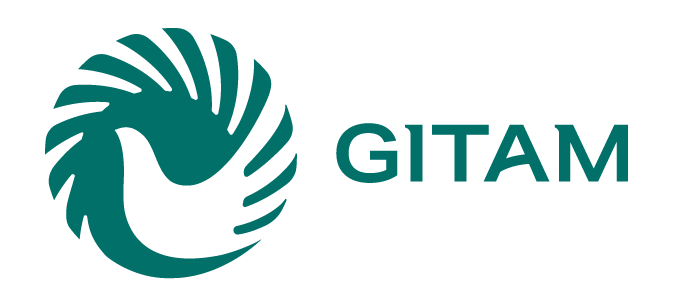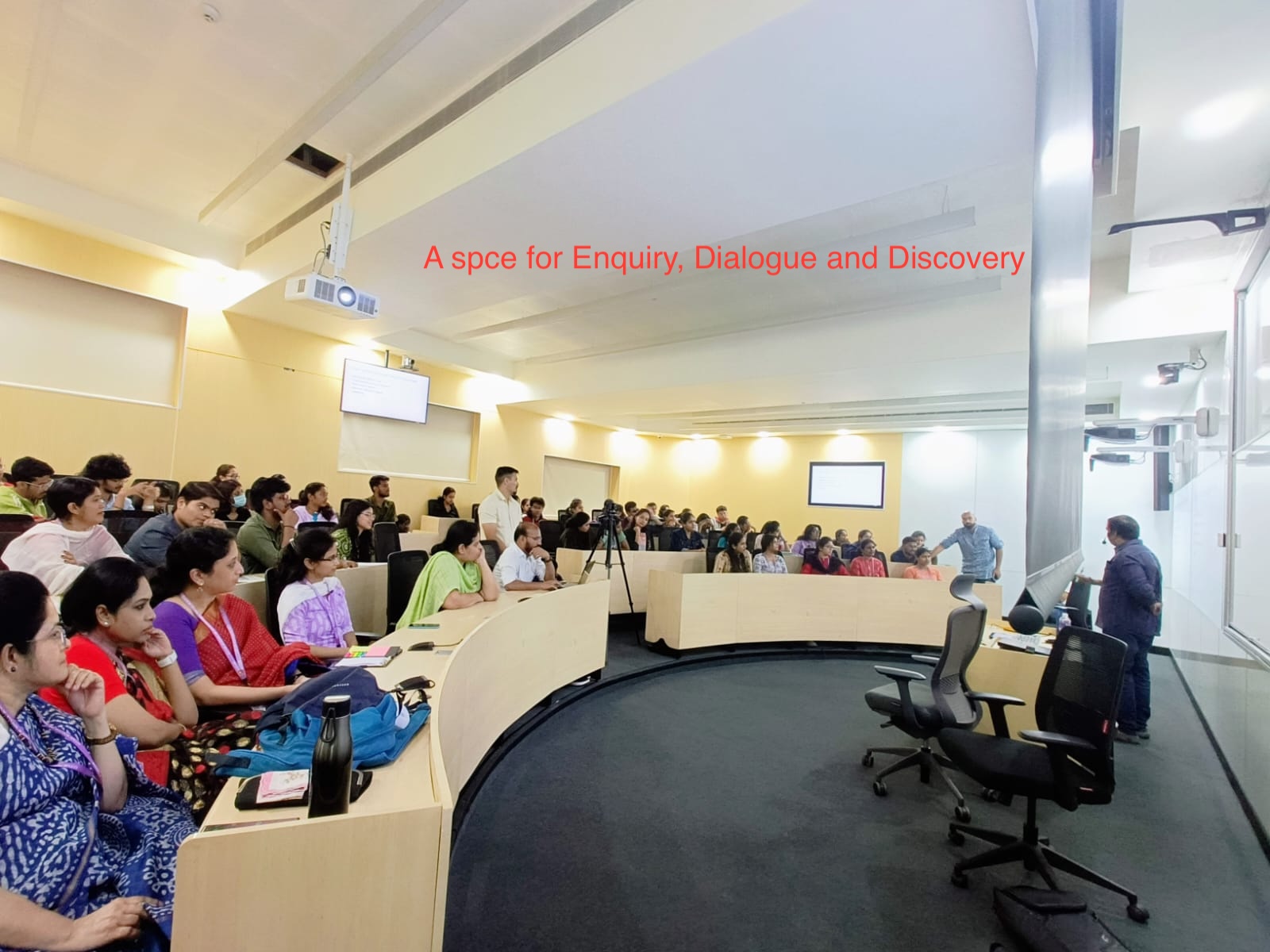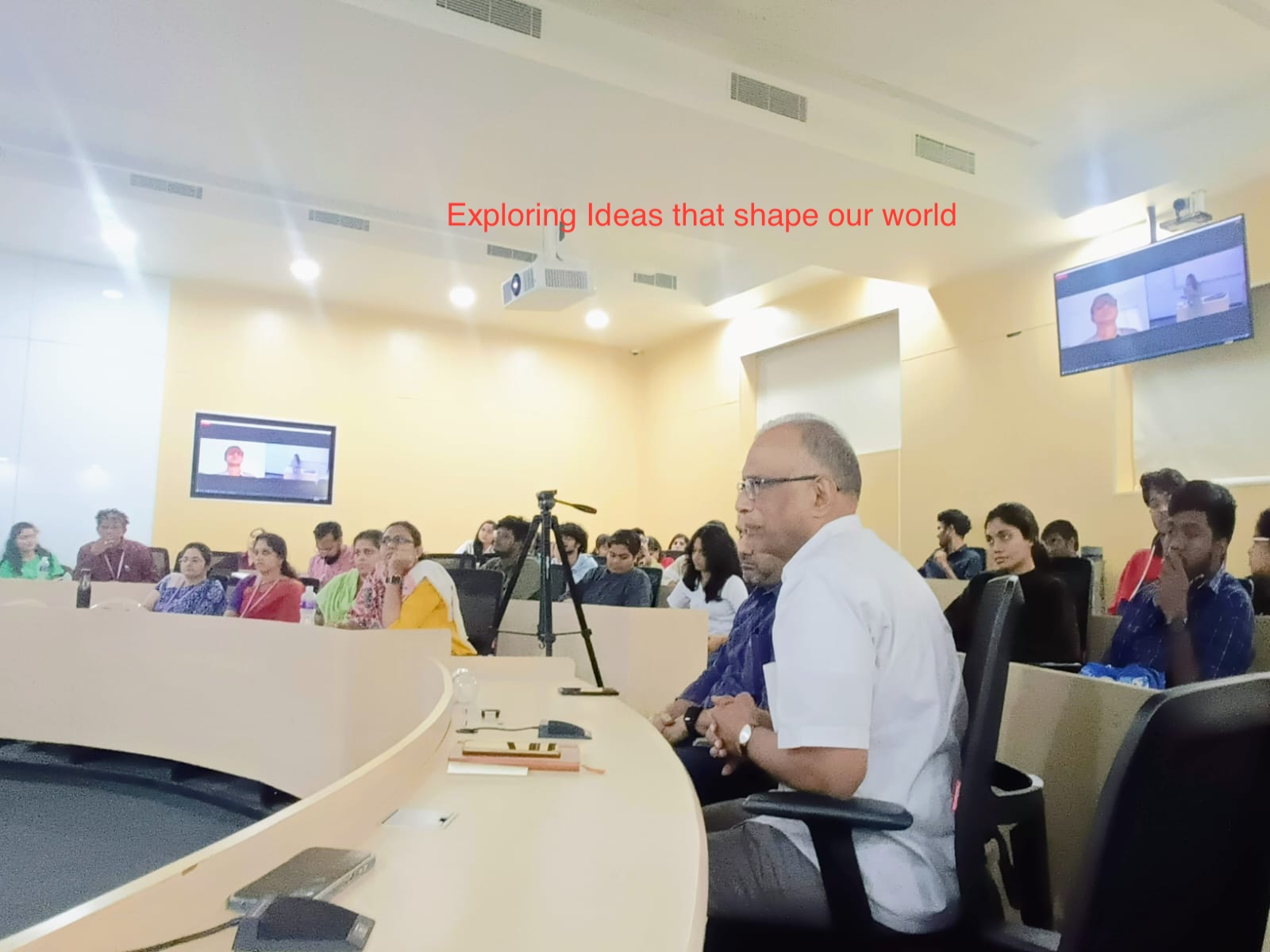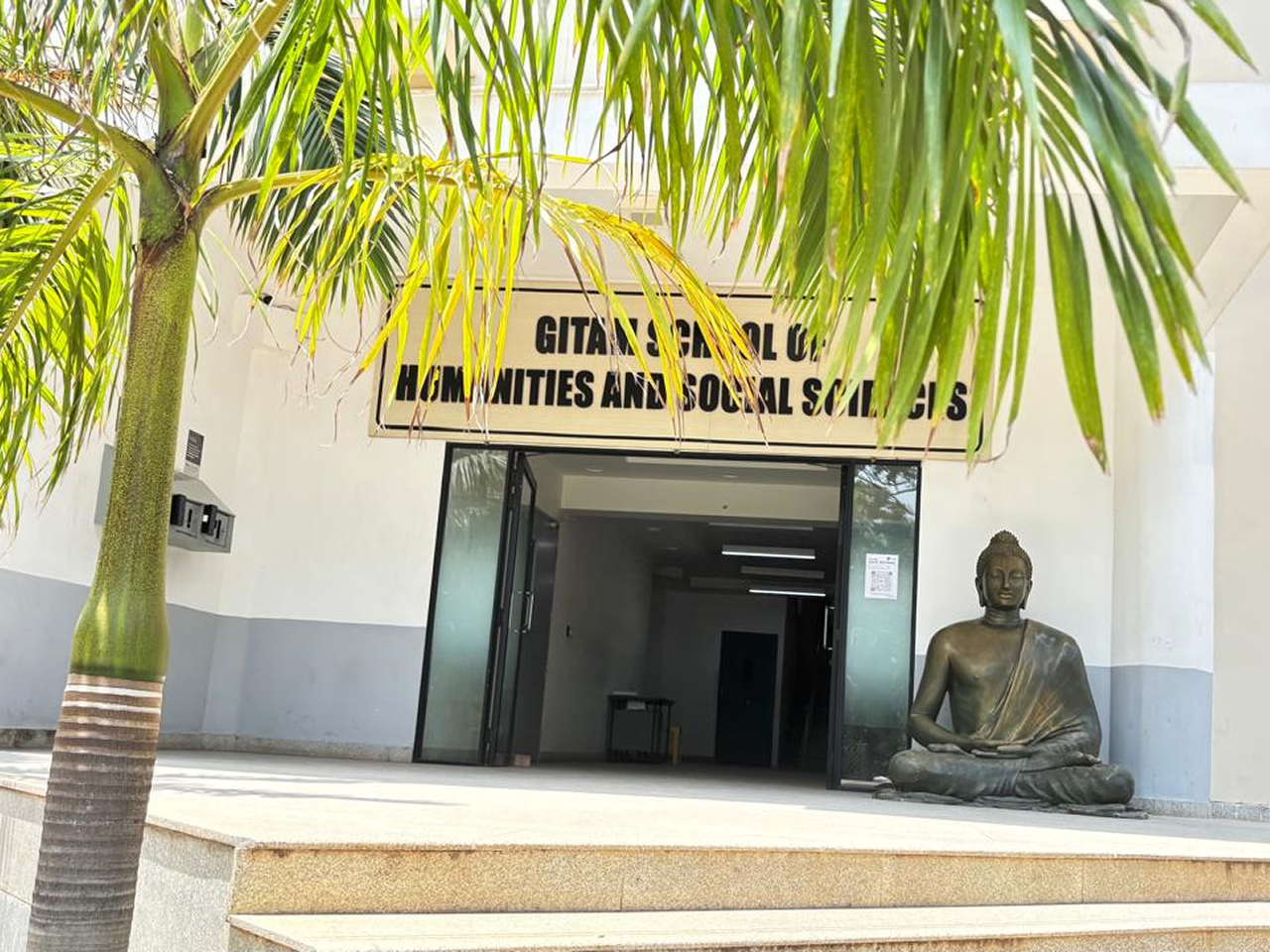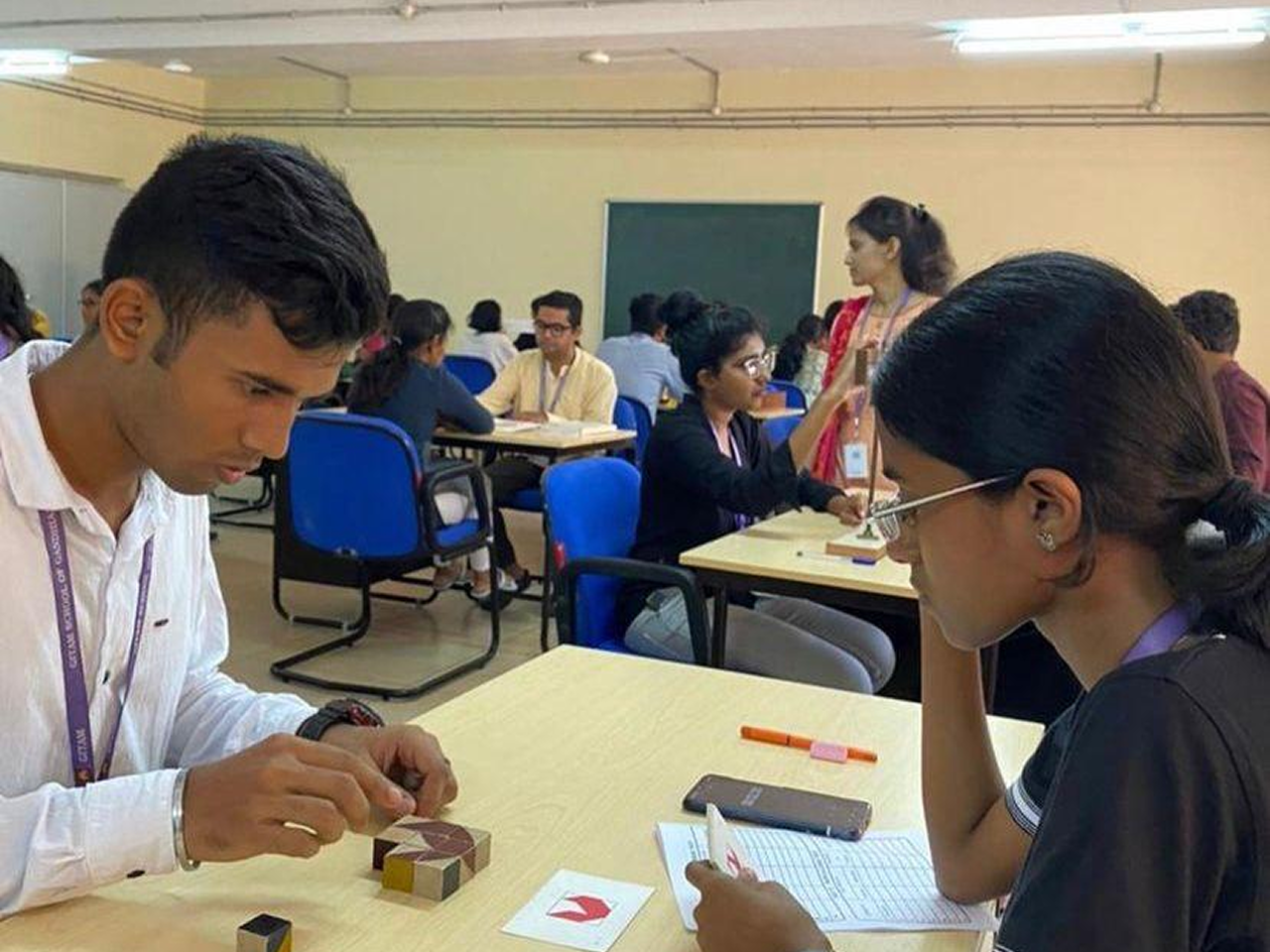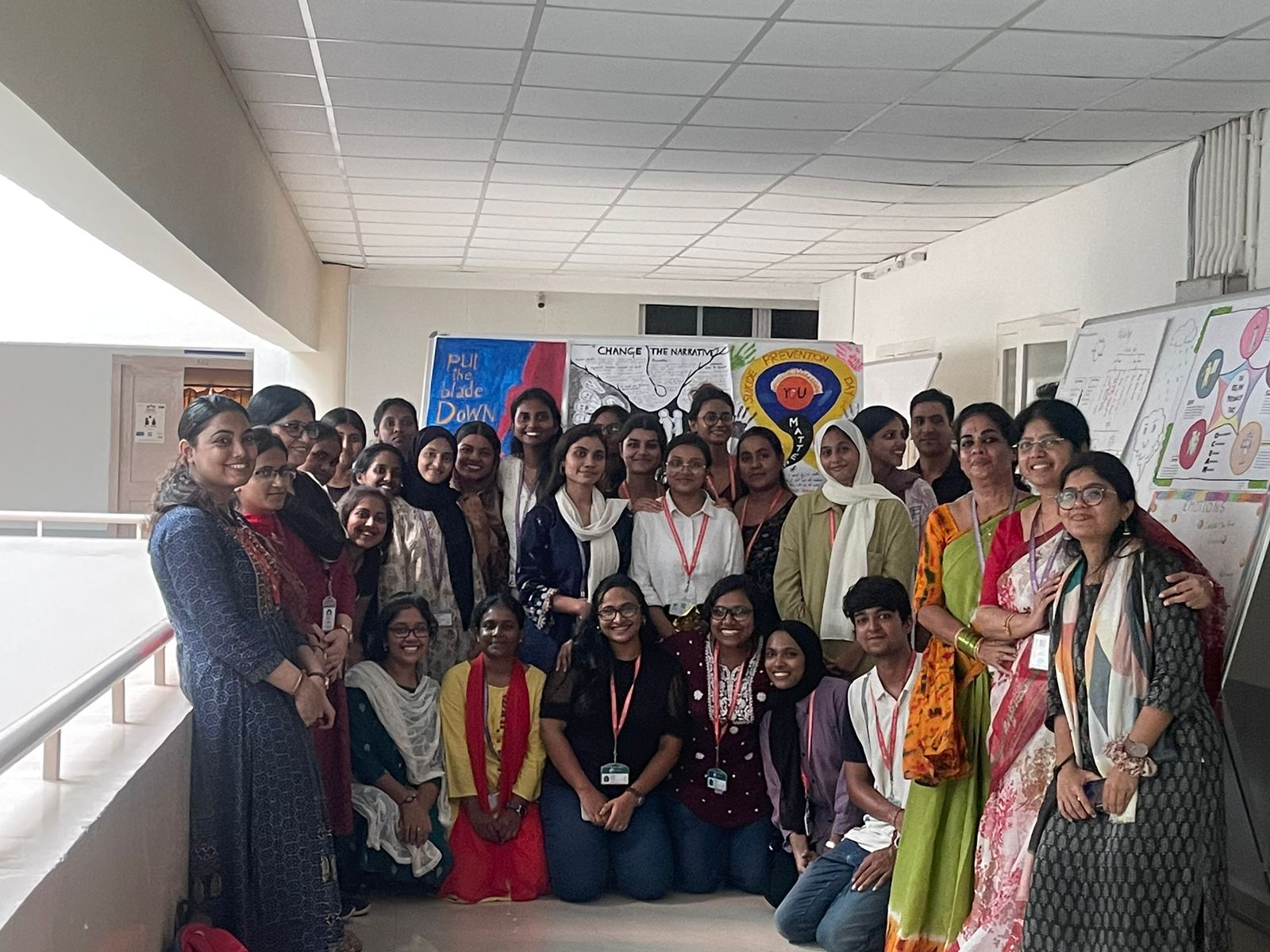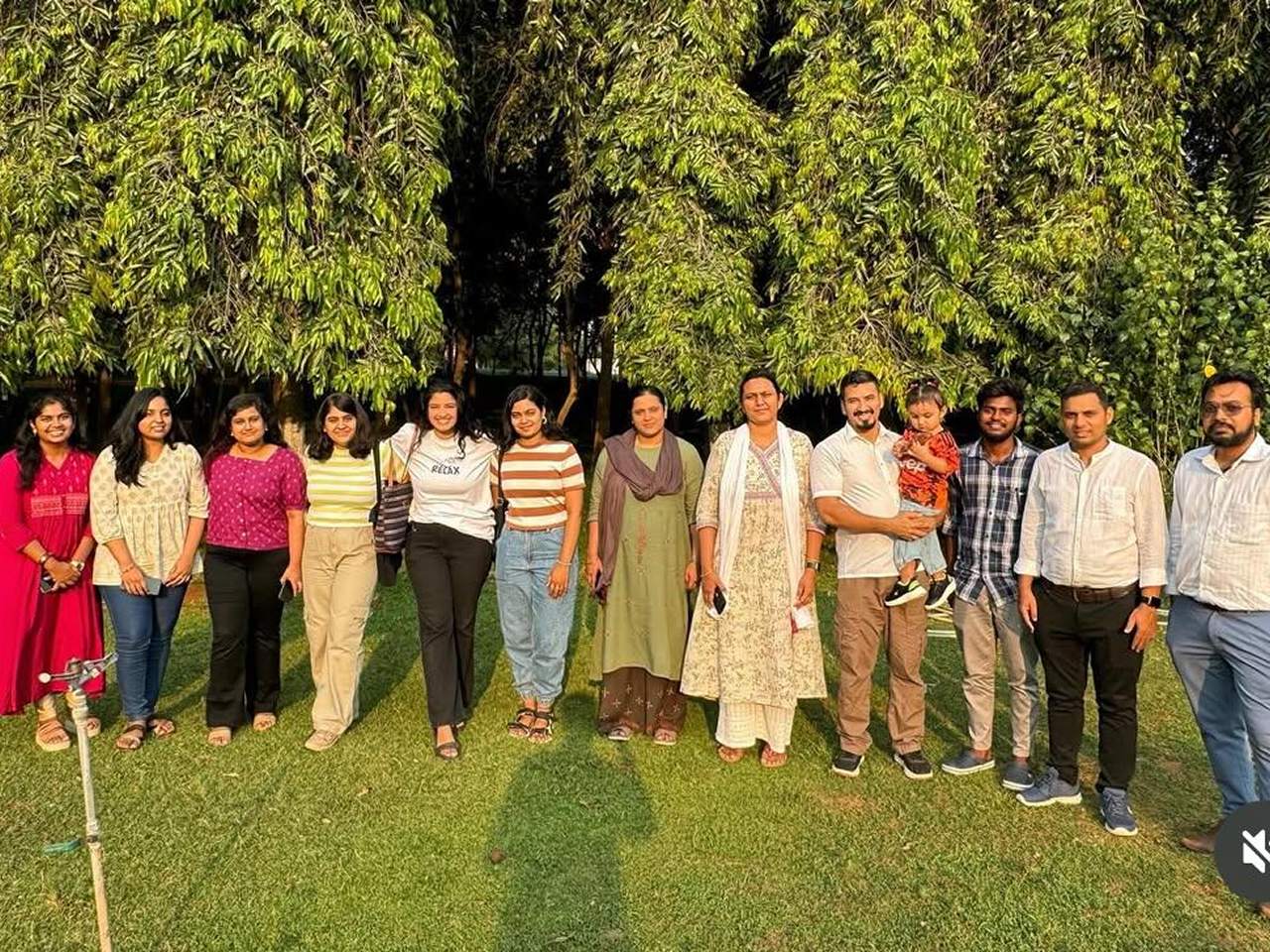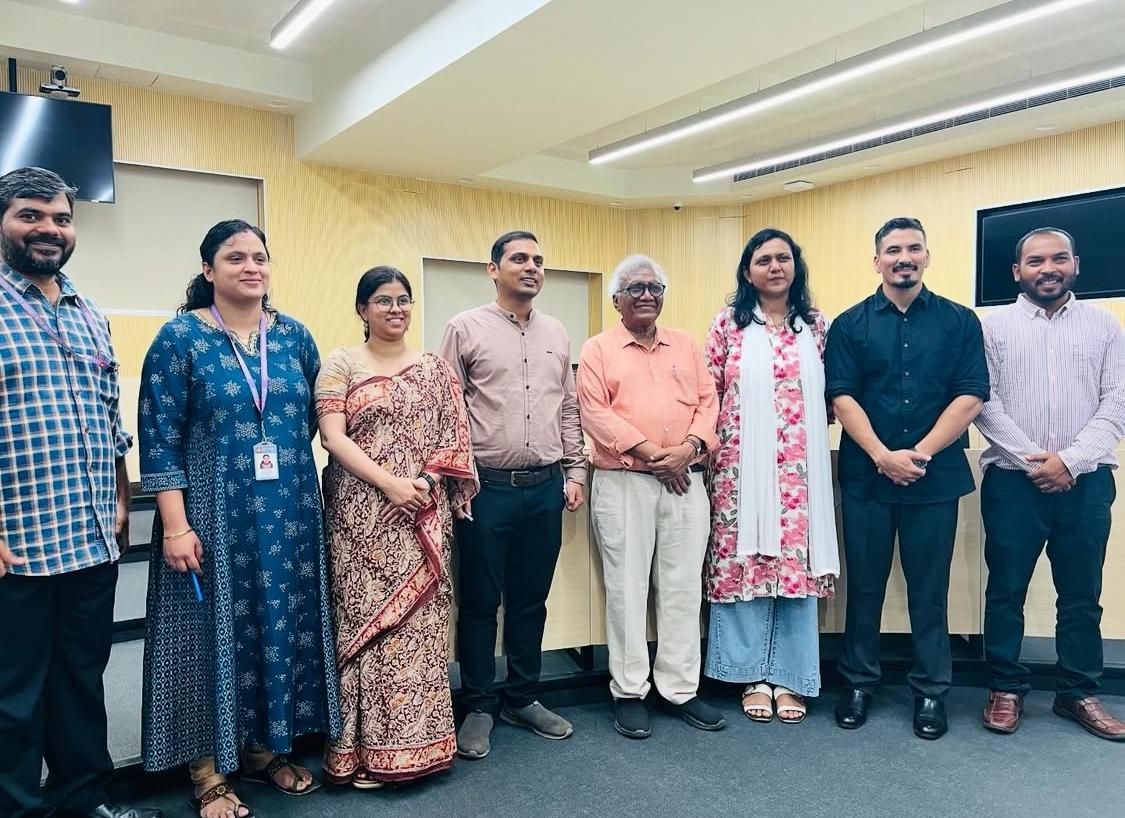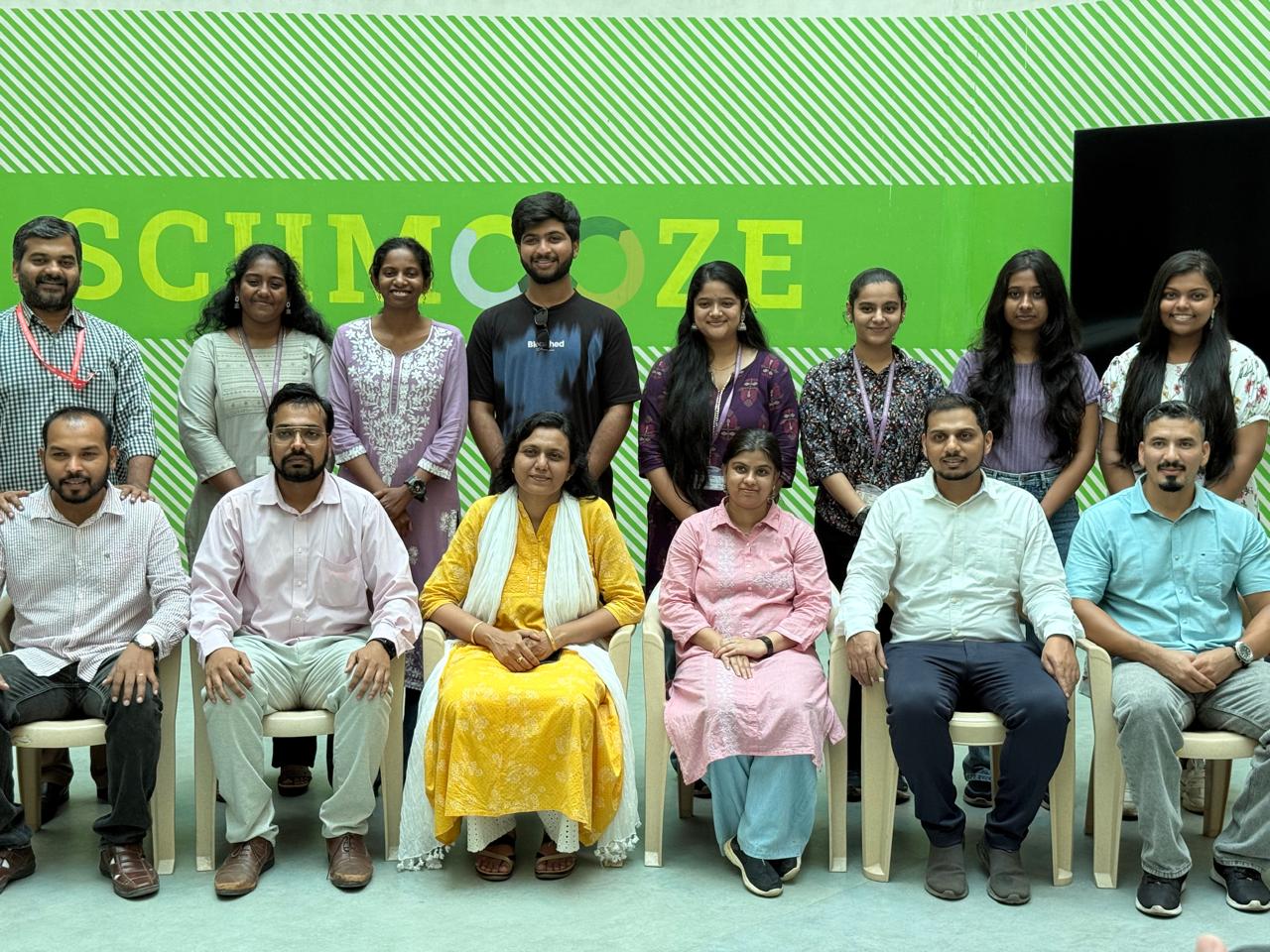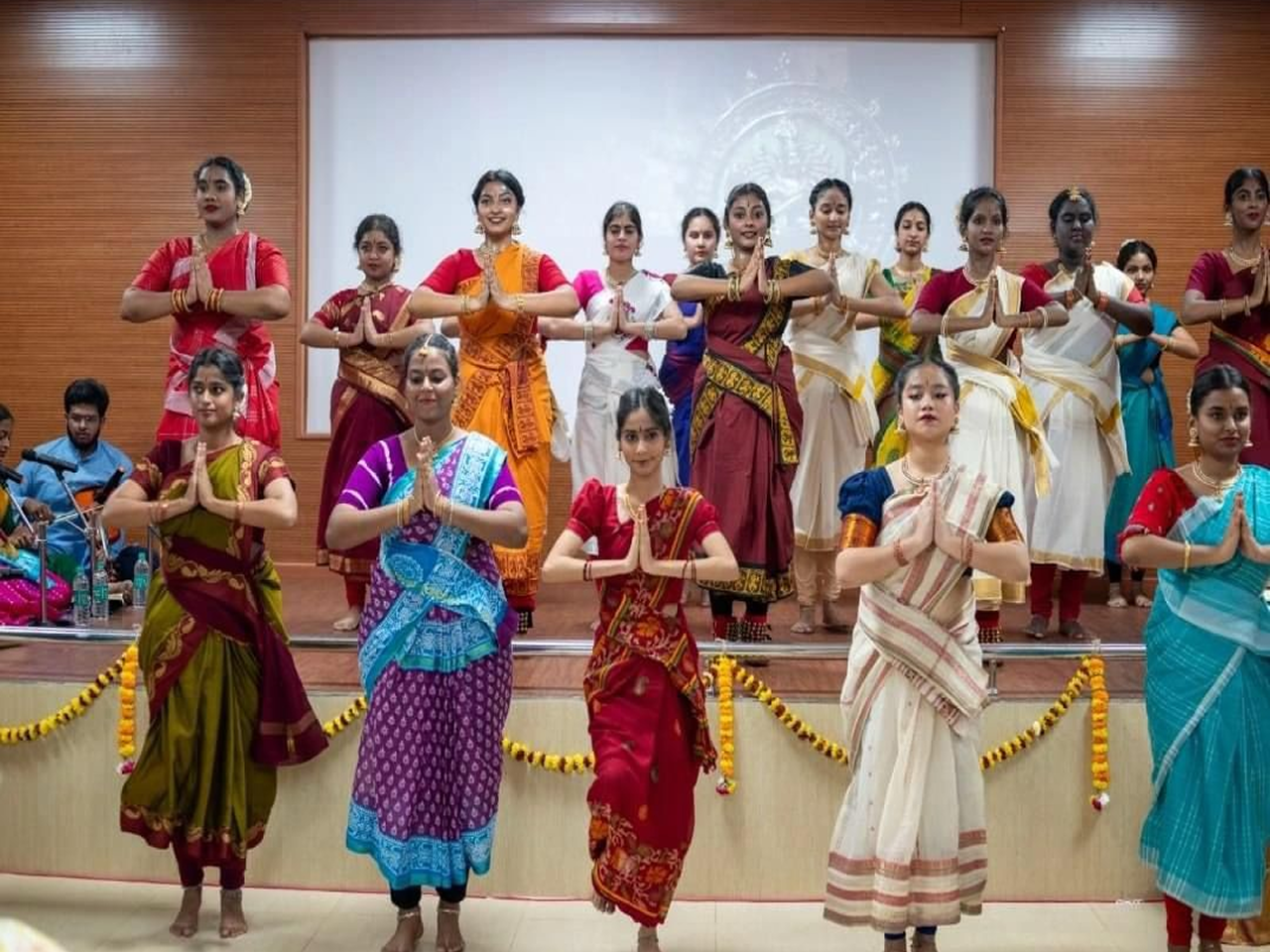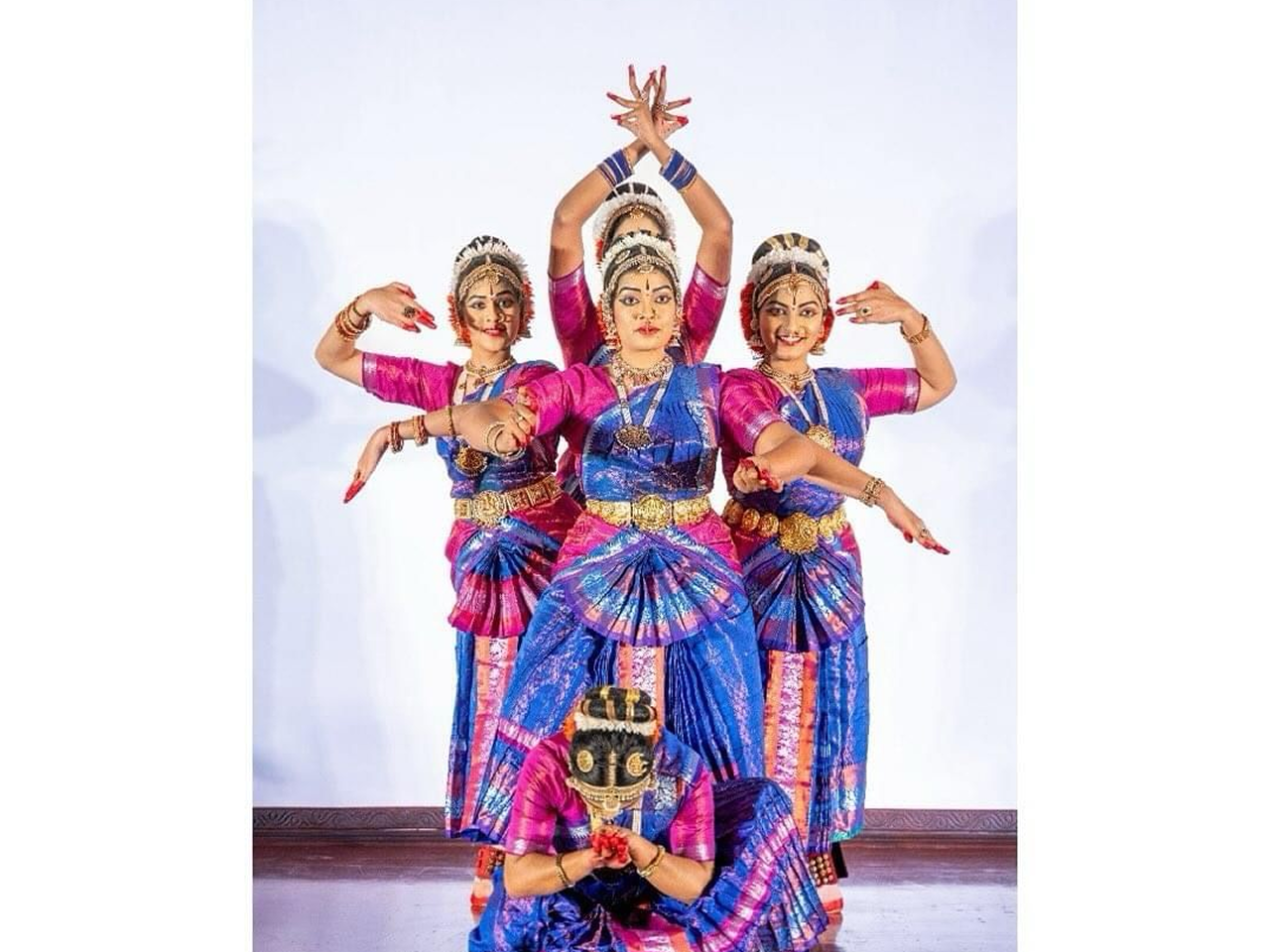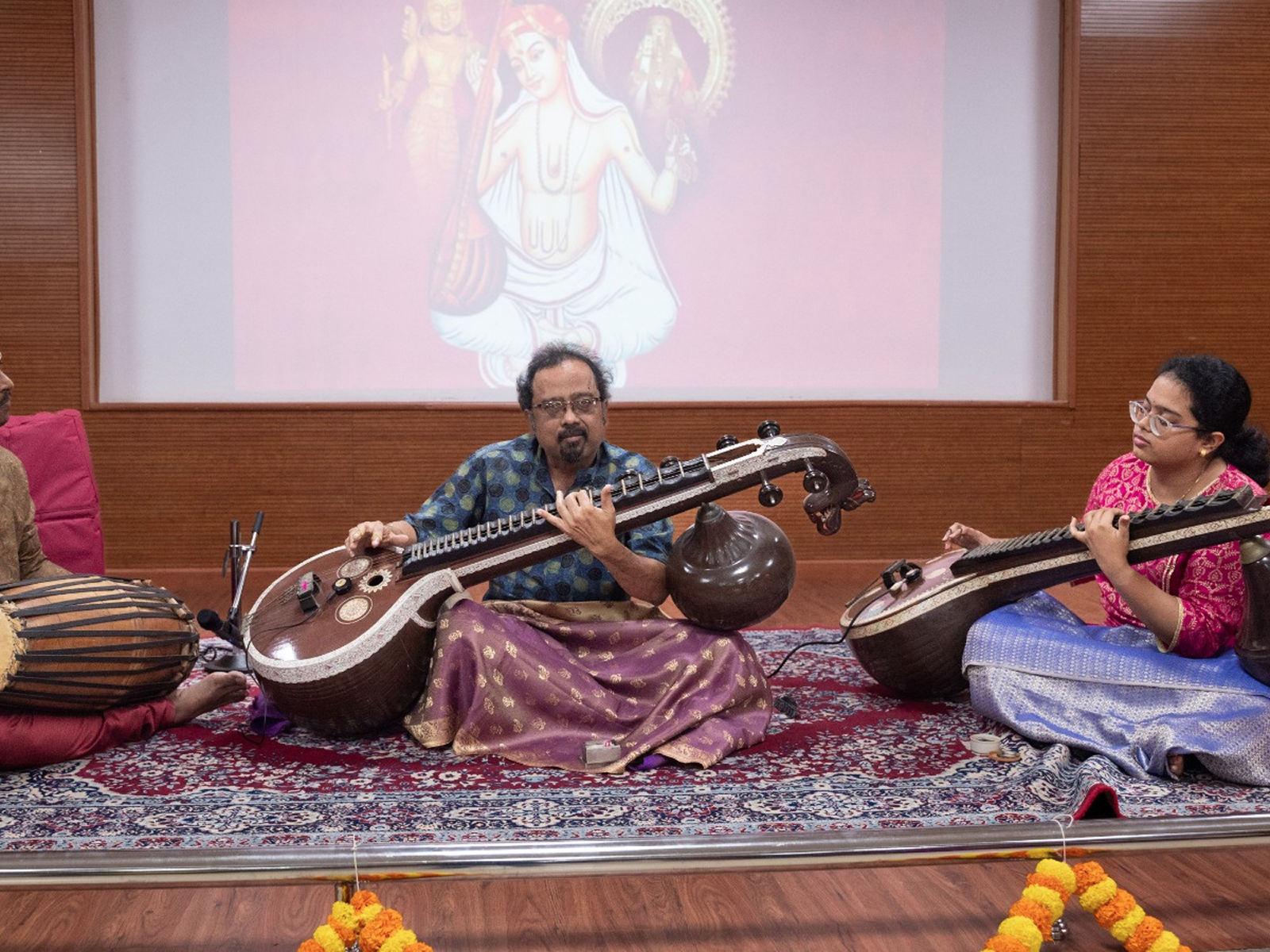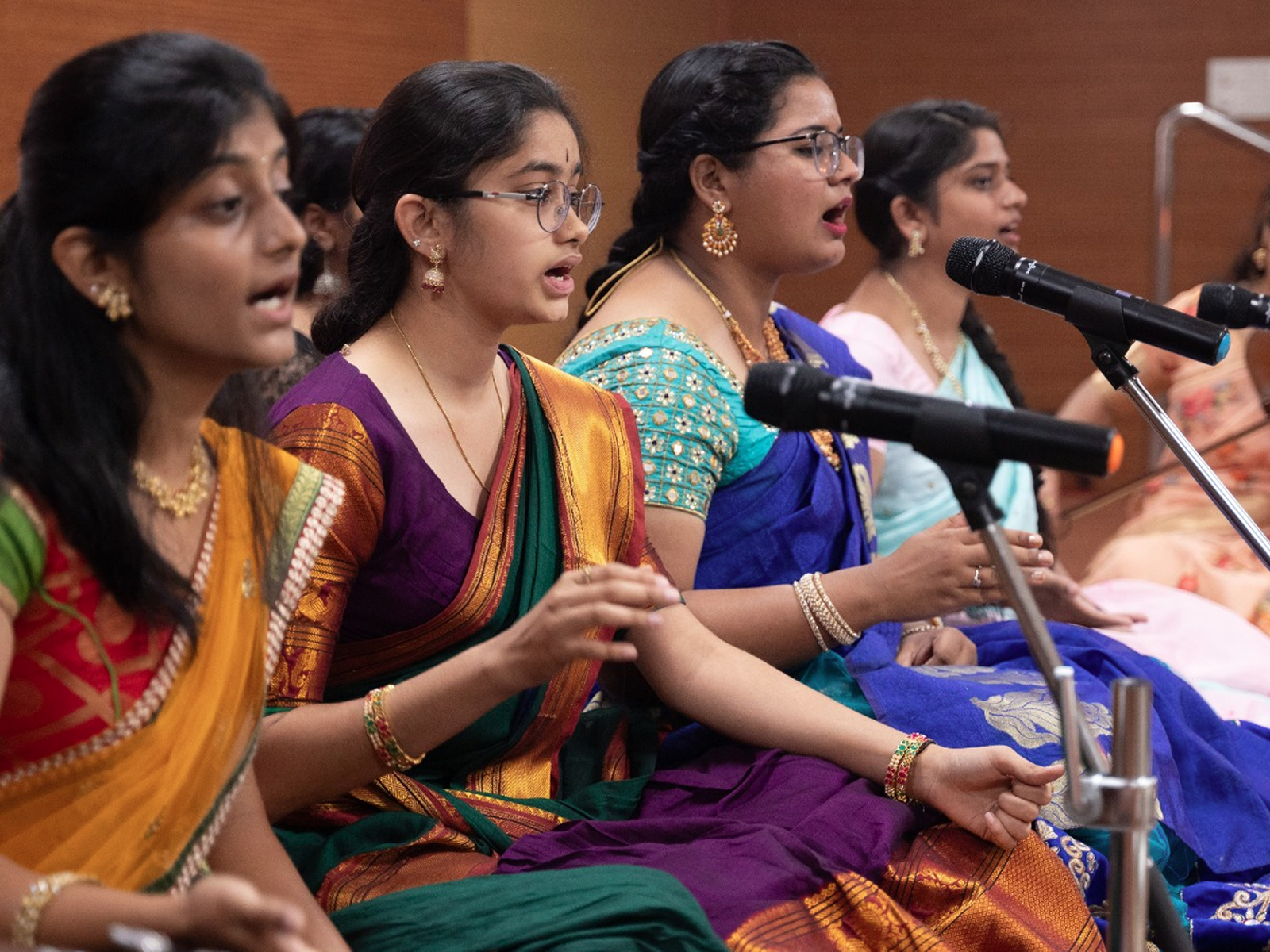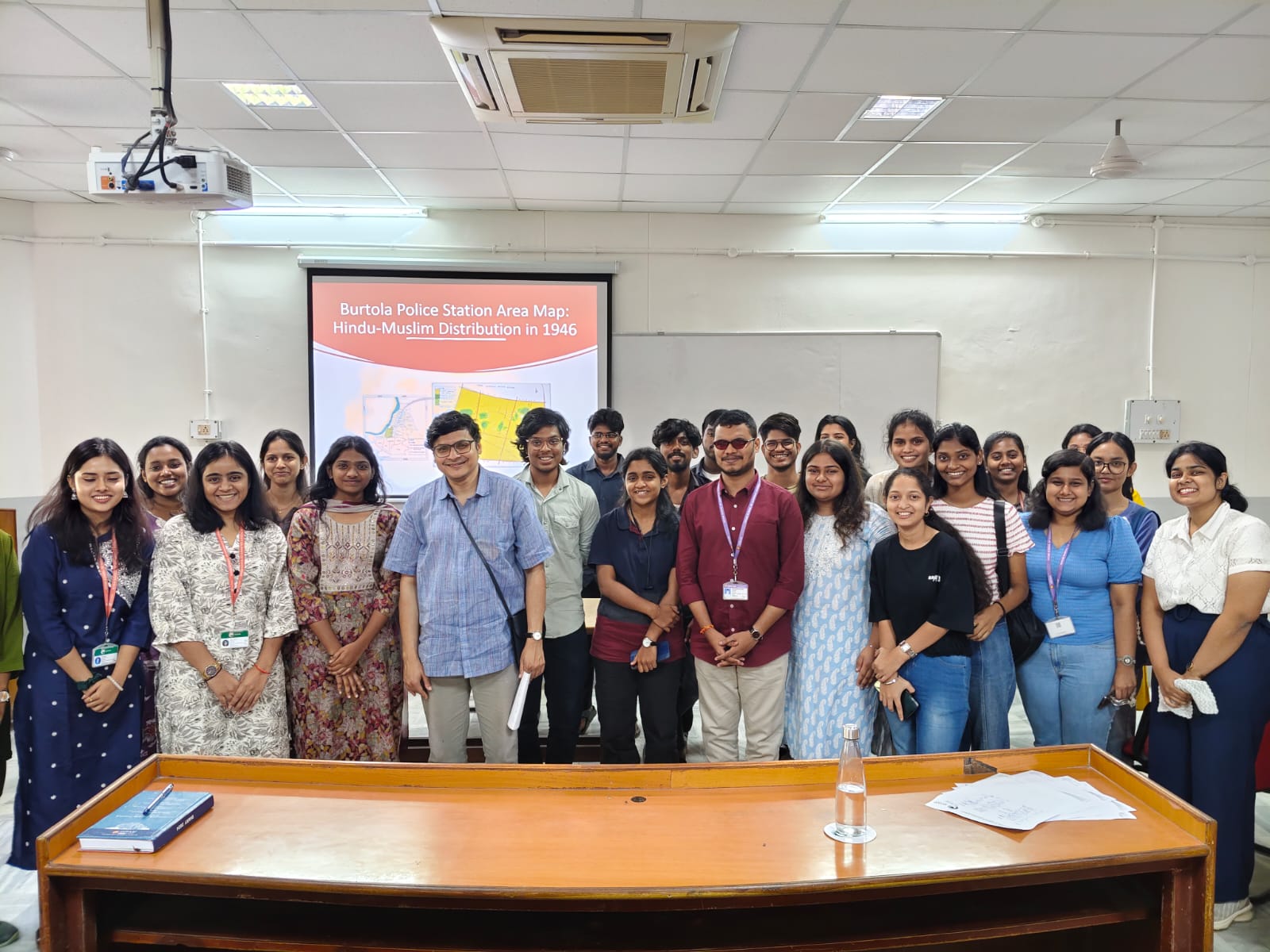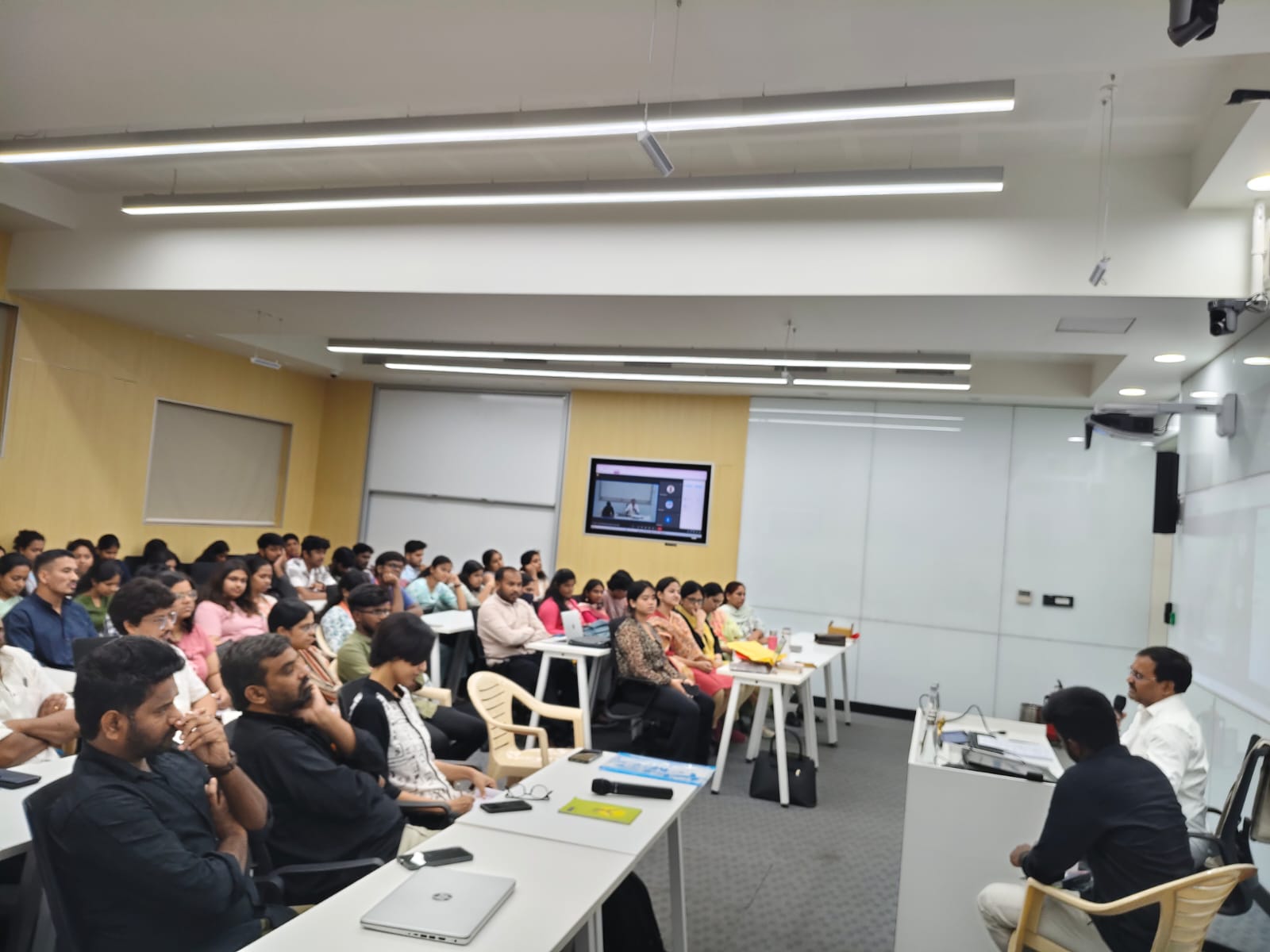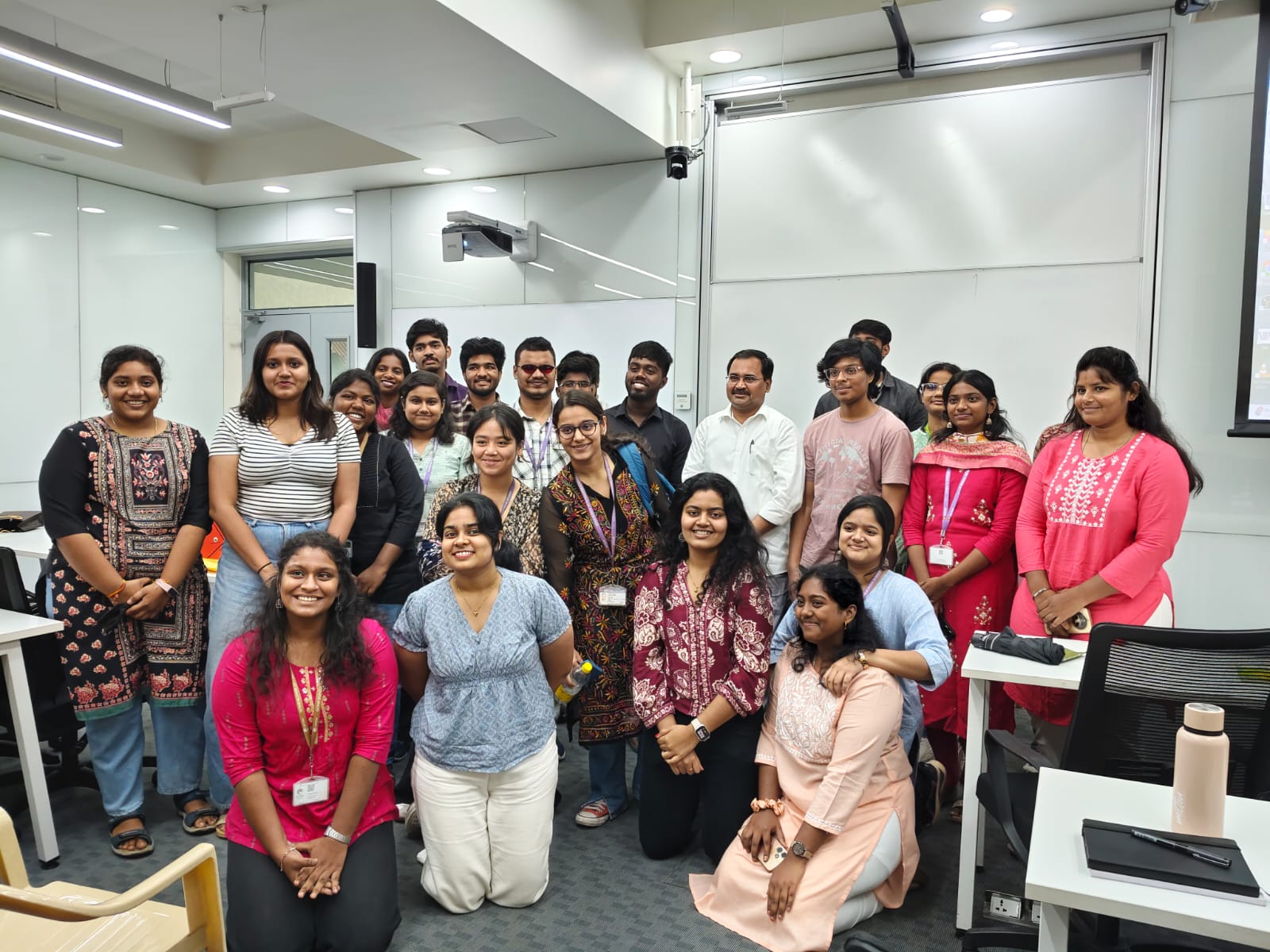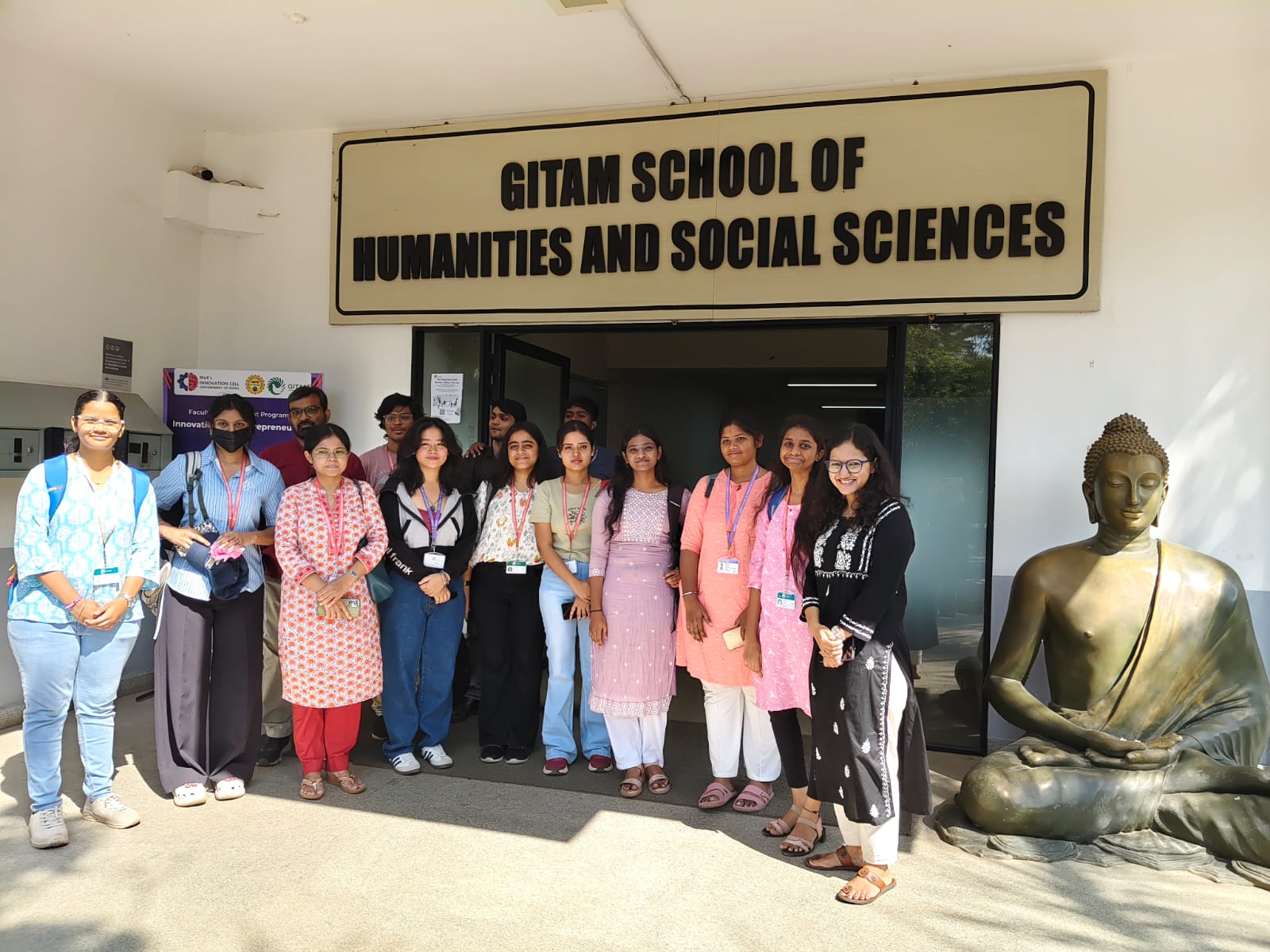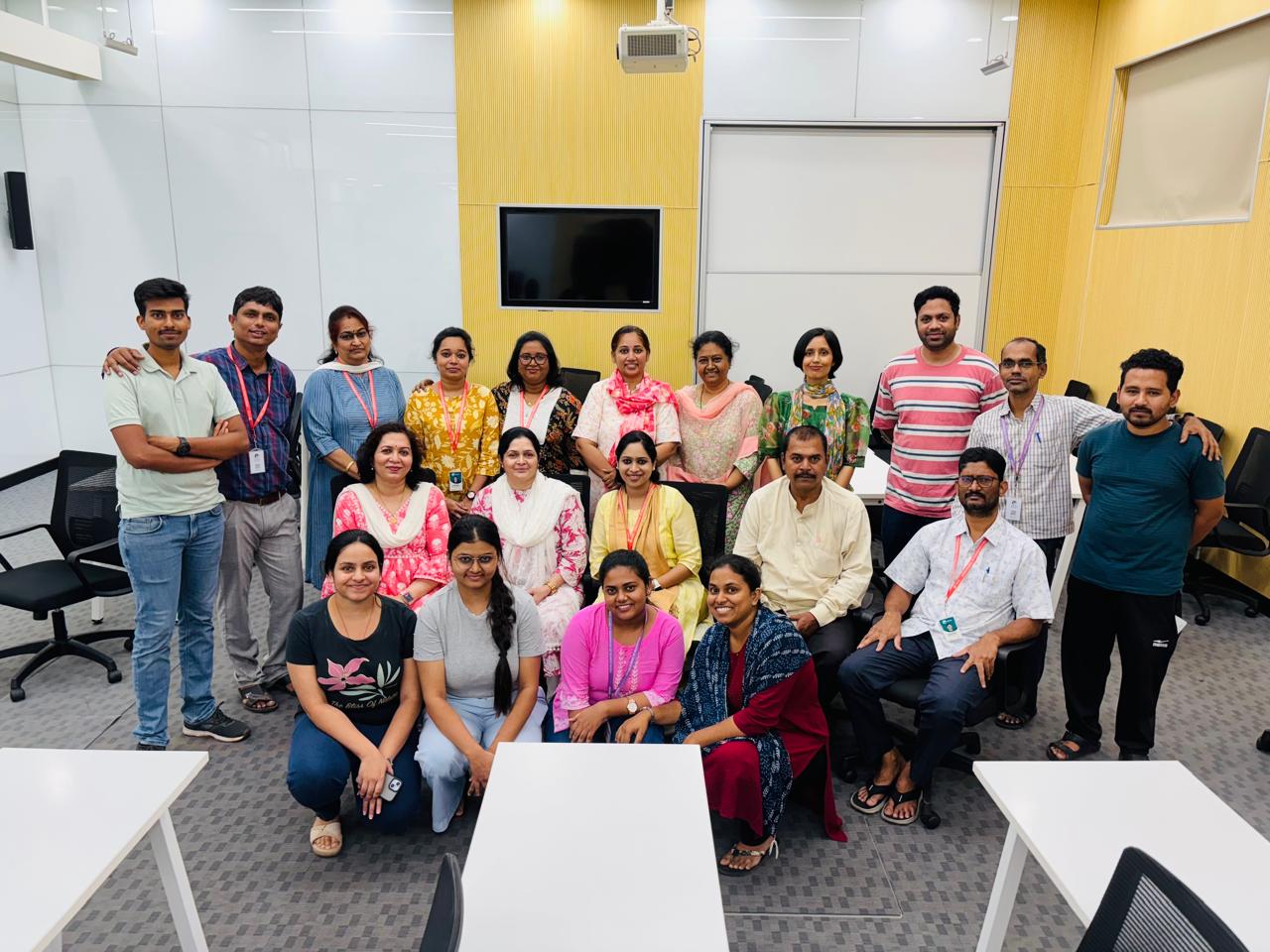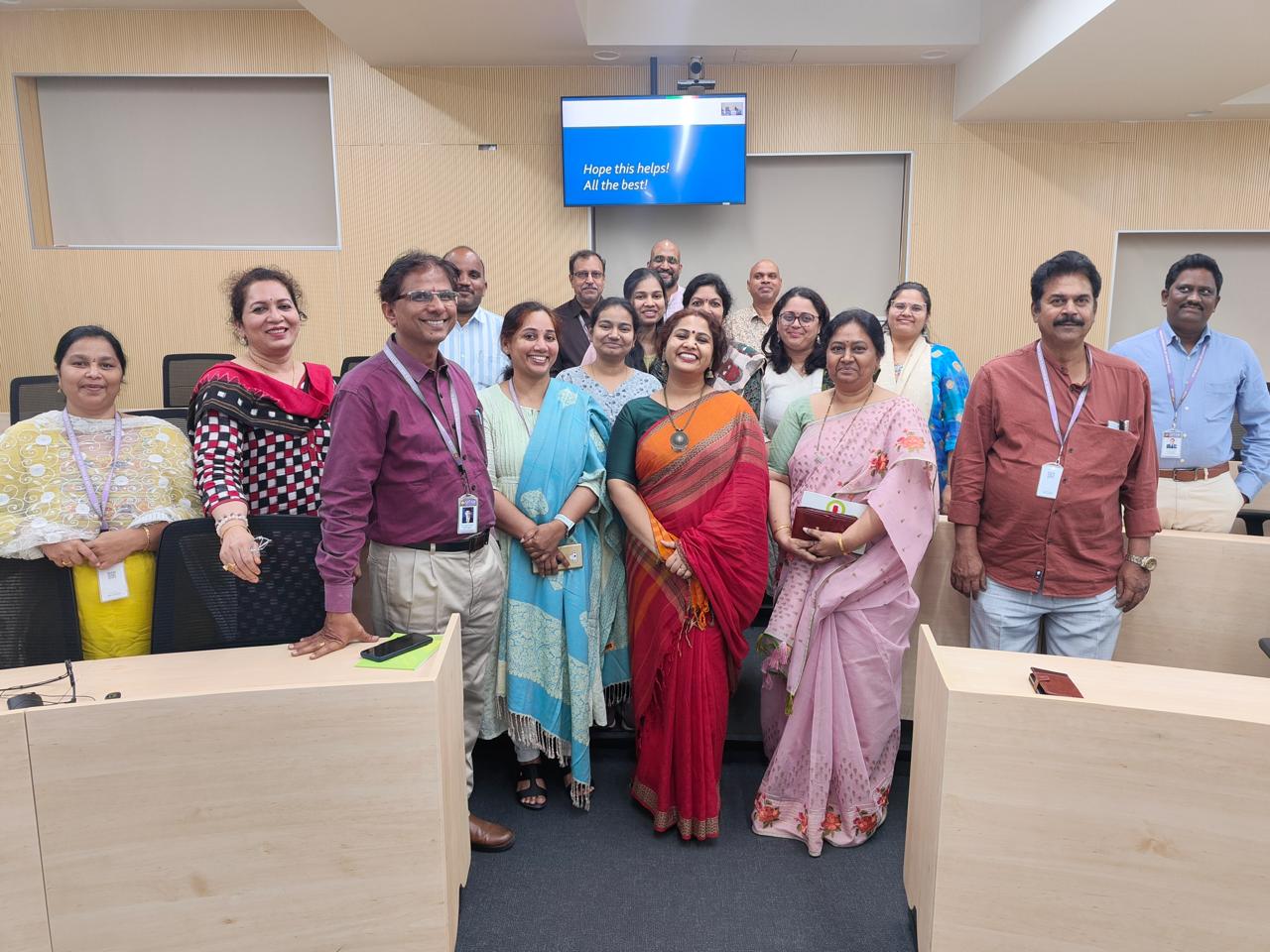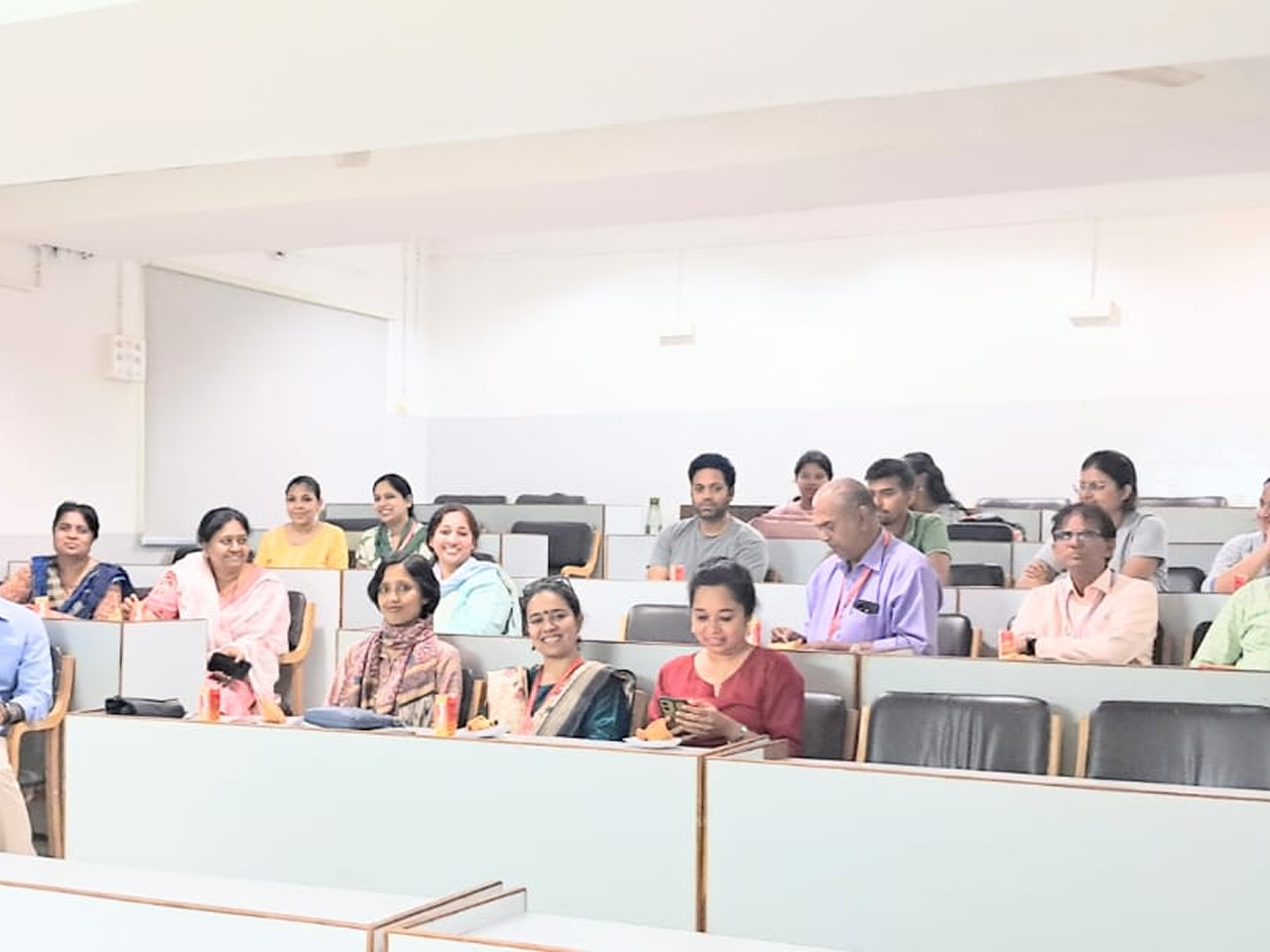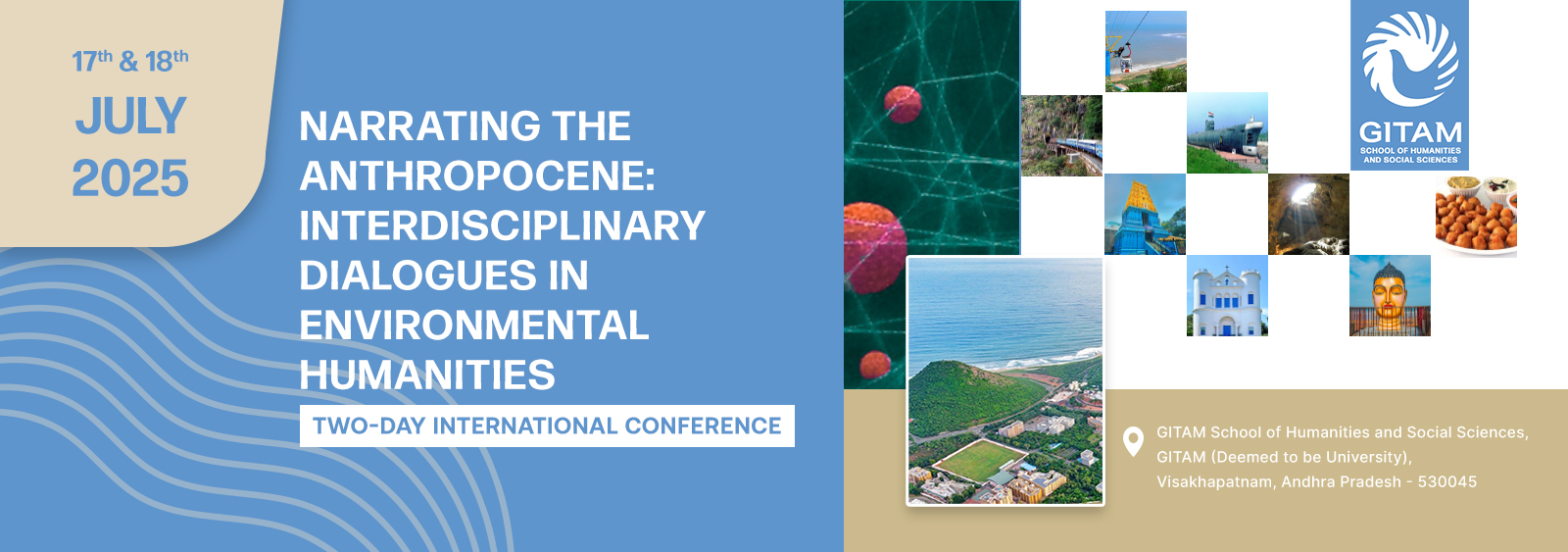
About GITAM (Deemed to be University)
The Gandhi Institute of Technology and Management, popularly known as GITAM, was founded in 1980 by an inspired group of eminent intellectuals and industrialists of Andhra Pradesh led by Dr. M. V. V. S. Murthi, former Member of Parliament and popular philanthropist. The vision of Mahatma Gandhi, was to see India as a socially and economically resurgent country and he looked upon education as an important means to achieve this goal. GITAM is committed to imbibe his values and abide by his philosophy. At GITAM, we are constantly working to achieve global standards and excellence in teaching, research, and consultancy by creating an environment in which the faculty and students share a passion for creating, sharing and applying knowledge to continuously improve the quality of education.
About GITAM School of Humanities and Social Sciences
Set in the picturesque seaside milieu of Vishakhapatnam's Rushikonda beach, the GITAM School of Humanities and Social Sciences (GSHSS) strives to inculcate in all its students a critical understanding of social reality alongside a thorough appreciation of the aesthetic and artistic side of life. GSHSS is a vibrant academic hub comprising seven diverse departments and two interdisciplinary centres. The departments include English, Psychology, Economics, Political Science, Sociology, History, and Fine and Performing Arts. Each department offers a unique perspective on human thought, society, and culture, fostering an environment of intellectual curiosity and critical inquiry. Complementing these academic departments are two specialized centres: the Centre for Gandhian Studies and the Centre for Cultural Studies. Our faculty are dedicated to promoting a rational approach to the acquisition of knowledge in individual and interdisciplinary domains. The school facilitates the formation of the young minds as responsible citizens who in turn give their best to the society that cherishes a truly excellent human life. Together, the departments and centres create an ingenious educational environment that encourages interdisciplinary learning, creativity, and civic engagement, preparing students for dynamic leadership in a competitive world.
Concept
We live in a world that experiences and witnesses extreme and aberrant changes in the weather and unprecedented radical shift in the environmental phenomena. Failure of acting proactively and going beyond the usual, would result in the disintegration of an eco-system that we share with other living and non-living beings and normalising the unwanted natural catastrophe. Spivak's idea of “planetarity” and the concept of the “Other,” demand extra care from humanity to protect the environment for safeguarding the future of both humanity and other organisms.
The Anthropocene, a term increasingly used across disciplines, marks a new geological epoch shaped predominantly by human activity. Climate change, mass extinction, deforestation, ocean acidification, and irreversible pollution are no longer distant warnings but present realities. The Anthropocene challenges traditional narratives of progress and calls for urgent and transformative engagement across global communities.
In this context, the Environmental Humanities has emerged as a vital interdisciplinary field that bridges literature, history, philosophy, cultural studies, sociology, and social sciences to grapple with the ethical, cultural, and emotional dimensions of environmental crises. Narratives— whether literary, visual, oral, or digital—play a critical role in shaping public understanding, collective memory, and future imaginaries in the age of ecological uncertainty.
This international conference proposes to bring together diverse disciplinary voices to critically engage with the concept of the Anthropocene and its, literary, cultural, social, political, economic, and psychological dimensions. Participants are invited to contribute papers that interrogate how literature and art respond to ecological crises and offers imaginative strategies for resilience and sustainability in the Anthropocene.
Through this platform, we aspire to foster dialogue between diverse disciplines and knowledge systems to address the complex, multilayered challenges of ecological degradation and climate injustice.
Conference Objectives
- To explore the role of narrative and representation in framing the Anthropocene across literature, media, and performance.
- To investigate the socio-political and economic implications of environmental change in local and global contexts.
- To examine the psychological impact of climate anxiety and ecological grief in shaping human behaviour and identity.
- To encourage cross-disciplinary methodologies in addressing environmental issues.
- To promote eco-critical and socially engaged artistic practices that respond to ecological collapse.
Expected Outcomes
- Fostering interdisciplinary dialogue across humanities, social sciences, and environmental studies.
- Generating collaborative research networks and future academic partnerships.
- Publishing a special journal issue of selected papers.
- Promoting inclusive and decolonial narratives in environmental discourse.
- Enhancing public and academic engagement through creative and digital outputs.
Themes and Sub-Themes
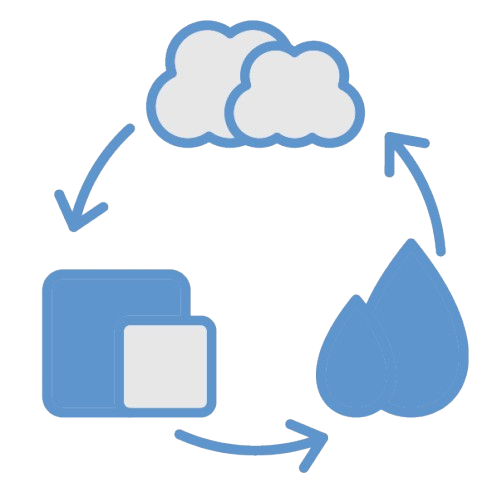
Narratives of Nature
Literary Responses to Ecological Crises
- Ecocriticism and green literature
- Nature writing and climate fiction (cli-fi)
- Indigenous ecological wisdom in literature
- Anthropocene narratives and posthumanism
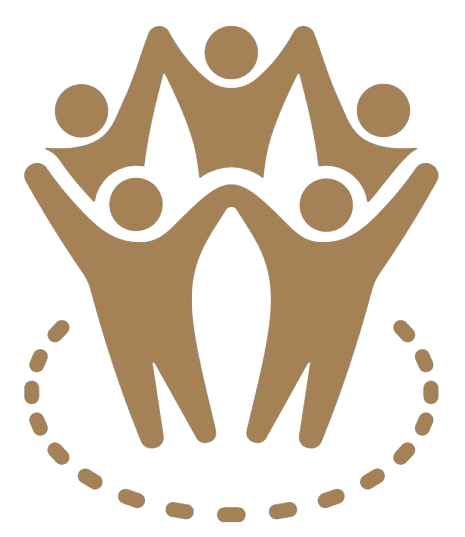
Society and Sustainability
Sociological Dimensions of Environmental Change
- Environmental justice and inequality
- Lives and Livelihoods close to nature
- Social movements and eco-activism
- Urbanization and environmental degradation

Deconstructing Ecology
Environment, Indigeneity and Politics
- Locating Politics in Political Ecology and Cultural Politics
- Negotiating Identity and Survival of Ecologically Marginalized Communities
- Political Mobilization, Legal Contestations, and the State
- Degrowth Politics, Sustainability and Environmental Humanities
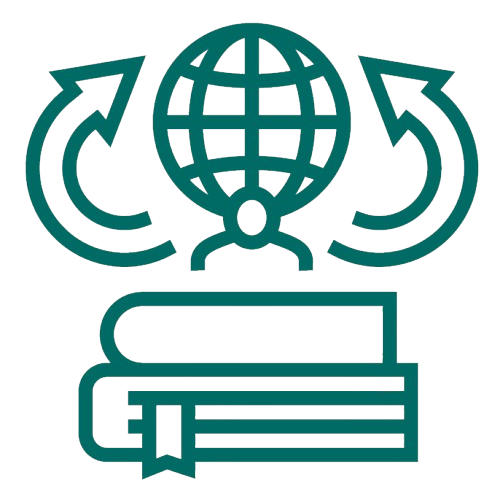
Environmental Histories
Landscapes, Livelihoods, and Legacies
- Environmental transformations across eras
- Colonialism and ecological exploitation
- Agricultural and industrial revolutions: ecological consequences
- Traditional ecological knowledge and historical practices
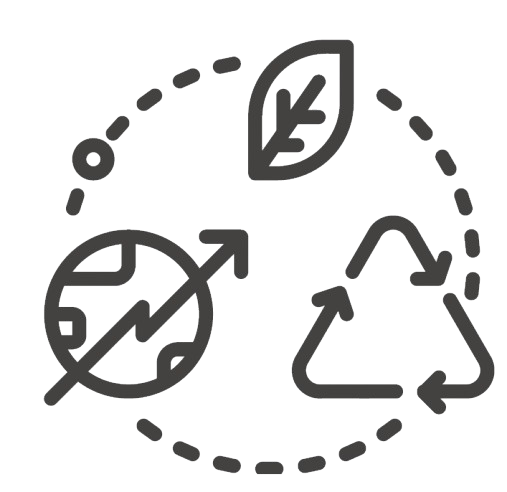
Green Economies
Sustainability and Development in the Age of Crisis
- Climate change and economic vulnerability
- Circular economy and sustainable Development
- Environmental taxation and green incentives
- Economics of renewable energy and ecological transition
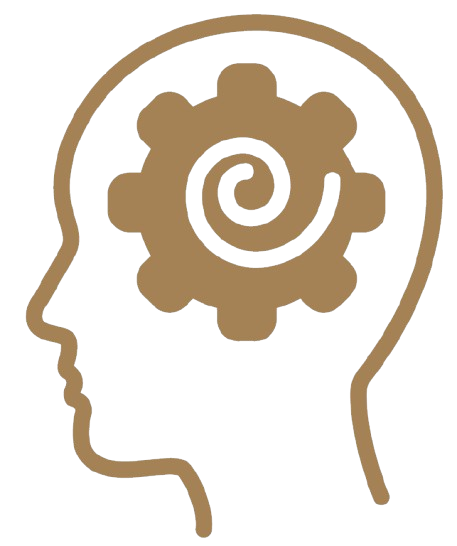
The Human Psyche and the Planet
Psychological Perspectives on Environmental Issues
- Grief to Resilience: Psychological responses to environmental loss and connection
- Psychological drivers and deterrents of climate action
- Environmental identity and ecological self
- Nature and psychological well-being
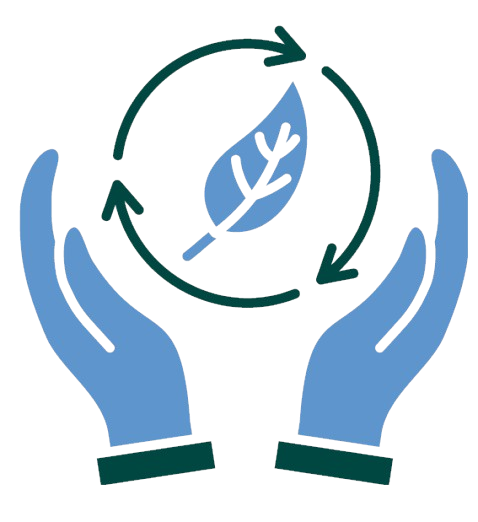
Gandhian Philosophy and Environmental Ethics
- Swaraj and sustainable living
- Simplicity, self-sufficiency, and nature
- Gandhian non-violence and eco-consciousness
- Gandhian critique of industrial modernity
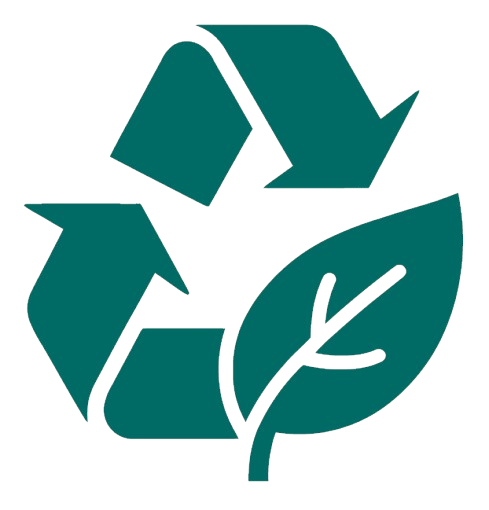
Eco-Performance
Environmental Consciousness through Artistic Expression
- Theatre for environmental advocacy
- Dance and ritual performances inspired by nature
- Eco-music and soundscapes
- Storytelling, puppetry, and folk performances on ecological themes
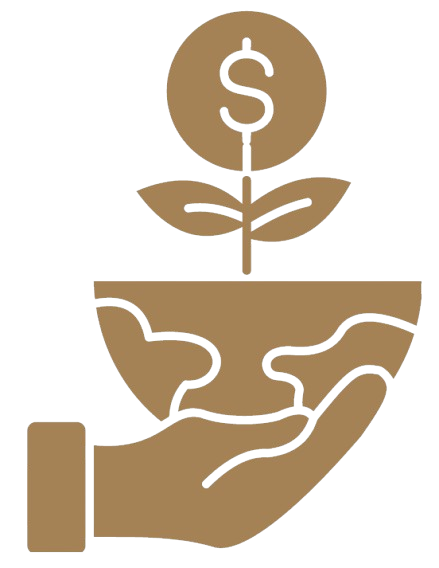
Ecologies of Culture
Environment, Identity, and Everyday Life
- Cultural representations of nature and environment
- Consumption, material culture, and ecological footprint
- Rituals, festivals, and eco-spiritual practices, landscapes and the built environment
- Questions of ecology in media, popular culture and graphic narratives
Guidelines
Abstract Submission
Authors are invited to submit abstracts (250 words) that reflect novel insights, theoretical advancements, or practical applications relevant to the conference themes. Each submission should be original, unpublished, and written in clear academic language, highlighting the purpose, methodology, key findings, significance of the work, and key words. Abstracts will undergo a peer-review process to ensure quality, relevance, and originality.
By submitting an abstract, participants affirm that the work is their own and not under consideration elsewhere. Authors will be notified within the stipulated time of the decision via the email address provided during submission.
Note : Please indicate the theme/sub-theme which best represents the abstract.
Abstracts to be sent on or before 31st May 2025 to : enconferencegshss2025@gitam.in
Publication Opportunities
Selected papers will be published in Neohelicon (Springer Nature).
Note : Depending on the number of submissions and participations, another publication in the form of an edited volume of conference proceedings with ISBN number may be considered.
Who can attend?
Faculty Ph.D. Scholars Post Graduate StudentsKeynote Speakers
Prof. Simon C. Estok
Senior Fellow,
Full Professor
Sungkyunkwan University
Dr. Simon C. Estok is the recipient of the Shanghai Metropolitan Government “Oriental Scholar” Award (2015-2018) and resident during that period at the Research Center for Comparative Literature and World Literatures at Shanghai Normal University. Estok is also a Senior Fellow and Full Professor at Sungkyunkwan University, where he teaches literary theory, ecocriticism, and Shakespearean literature. Estok's research interests include ecocriticism, early modern European culture, and the relationships between theory and practice.
Dr. Rayson K. Alex
Associate Professor,
Department of Humanities
Social Sciences,
BITS Pilani
Dr. Rayson K. Alex is Associate Professor at the Department of Humanities and Social Sciences, Birla Institute of Technology and Science Pilani, K. K. Birla Goa Campus, Goa. His academic work lies in the area of ecocriticism, or broadly environmental humanities (EH) with a specific focus on indigenous nature-cultures and eco-cinema.
Dr. Manisha Rao
Associate Professor,
Department of Sociology,
University of Mumbai
Dr. Manisha Rao is an Associate professor at the Department of Sociology, University of Mumbai. Her research and teaching focus on the intersection of environment, gender, development and social movements.
Committee
Sri. Mathukumilli Sribharat
President, GITAM
Dr. Virander Singh Chauhan
Chancellor, GITAM
Dr. Errol D’Souza
Vice Chancellor, GITAM
Prof. Y. Gouthama Rao
Pro Vice-Chancellor, GITAM
Prof. D. Gunasekaran
Registrar, GITAM
Prof. D. Sambasiva Rao
Dean(I/c), GSHS, Hyderabad
Prof. Vibhuti Sachdev
Director (I/c), GSHS, Visakhapatnam
Dr. Binu George
Dr. G. Ravi Kanth
Dr. Sushma Raj
Dr. Pathivada Padmavathi
Dr. Murshida Khatoon
Dr. Sainaba. P
Dr. Pushia K. P
Dr. Kashif Nesar Rather
Dr. Rama Naga
Dr. Simone Zoya Khan
Dr. Srirupa Bhattacharya
Dr. Rekha Yadav
Dr. Iqubal Ahmad
Dr. Konduparti Maalyada
Dr. Bhavaraju L. Surya Teja
Dr. Jayesh. G
Dr. Deepsikha Changmai
Key Dates
Last date to submit abstract:
20/05/2025
Notification of acceptance of abstract:
25/05/2025
Last date to submit the working paper (4000 words):
25/06/2025
Last date to register:
25/06/2025
Gallery
Registration fee
Faculty - Rs. 1500/-
Scholars and postgraduate students - Rs. 1000/-
Foreign delegates - $100
Note: An 18% GST is applicable on the actual fee amount
Register & PayAccommodation
Room charges per day
For accommodation, write to: smenon2@gitam.edu (Mr. Sanjay Menon)
Executive residence (Limited number of rooms)
- Single room: Rs. 900/-
- Double room: Rs. 1,200/-
Hostel 1 (Attached bathrooms – Limited number)
- Single room (AC): Rs.600/-
- Double room (AC): Rs. 1,000/-
Hostel 2 (Shared rooms and common bathrooms)
- Non-AC: Rs. 300/- (per individual)
- AC : Rs. 500/- (per individual)
Publication
- Selected papers will be published in a special volume of NEOHELICON (Springer nature) : https://link.springer.com/journal/11059
- Depending on the number of submissions and participations, another publication of selected papers in the form of an edited volume with an ISBN may be considered.
Venue
GITAM School of Humanities and Social Sciences, GITAM (Deemed to be University), Visakhapatnam, Andhra Pradesh - 530045
Contact
Dr. Binu George
+91 9495842245
Dr. G Ravi Kanth
+91 9493507705
Dr. Rama Naga
+91 8826705303
Dr. Murshida Khatoon
+91 9903598026
